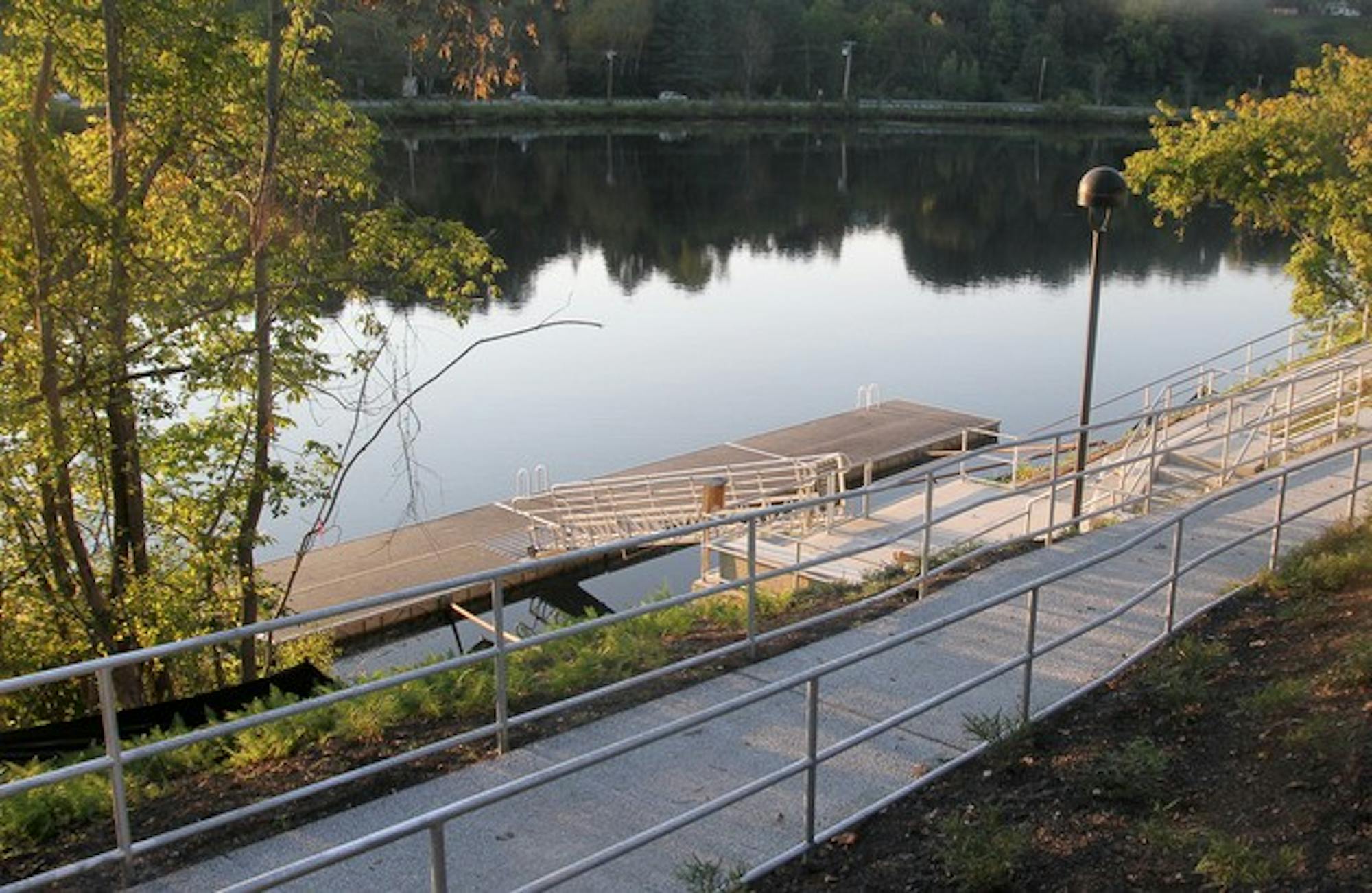Yesterday's warning stated that streams and rivers in New Hampshire may rise, and urged residents to create emergency kits and seal their basements.
Yesuto Shaw '15, a lifeguard at the Connecticut River swim docks, said the rain has increased the speed of the river's current, almost forcing the docks to be shut down last week. Due to safety concerns, the swimming area is closed when the current's speed surpasses two feet per second. Last week, it reached a speed of 1.92 feet per second.
"The worry is it can get difficult for people who are not strong swimmers to go where they want in the river," Shaw said.
Students swimming in the river have noticed the drastic difference in its speed, Shaw said.
"On Saturday, several people made comments about how quickly it was moving and how far they moved when they were just treading water," he said. "It's definitely a noticeable change."
Lindsay Newton '15, who lives off campus with six other students, said this summer's daily downpours flooded her house's basement. The amount of standing water in the lower level has increased daily.
"I put my wellies on to go do laundry now," she said.
Though Hanover has experienced some flooding, the recent storms hit the Lebanon area particularly hard. Last week, flash flooding resulted in the evacuation of 24 people from Rivermere, an apartment complex for low-income families, the Valley News reported. Most of these residents spent the night at an emergency center at Lebanon High School.
Rachel Poplack, a rising junior at the University of Richmond, said her family's home in Lebanon was severely affected by the recent flooding on Slayton Hill. The heavy rain collapsed the entry to her family's half-mile-long dirt driveway.
"It was a ravine so deep that my dad could stand in it and only his head stuck out," she said.
Police officers stationed around Slayton Hill told local residents that it may take four to six weeks to get Slayton Hill Road "up and running" again, Poplack said.
Though the damage to Slayton Hill was severe, this level of destruction is not widespread.
"I had friends who didn't even know that there was this kind of damage around because it was so isolated," she said. "As a whole, Slayton Hill was hit significantly harder than anywhere else."
Engineering professor Eric Hansen, who lives on Slayton Hill, had to cancel his digital electronics class on Wednesday after his home lost power and his basement flooded.
Marc Goldberg, communications director for Gov. Maggie Hassan, D-N.H., said the governor is focused on addressing the needs of local communities that have been affected by the severe weather. The Federal Emergency Management Agency will survey the area in the next few days to assess whether the damage reaches the $2 million threshold for federal aid.
The heavy rainfall has precipitated an increase in the number of towing incidents in the Hanover area. Troy Lowery, a driver at Grizzaffi's Towing and Recovery, said increased moisture can cause damage to cars' electrical systems, disabling them and leading to the vehicles being towed.
The rain has also encouraged people stay in their homes, negatively impacting some local businesses. Nigel Leeming, owner of Murphy's on the Green and 3 Guys Basement Barbeque, said he has seen a slight decrease in business because fewer tourists and golfers have been visiting the area.
"You would think that more people would go to restaurants because they're not barbecuing," he said. "But that's just not true. I think that tourism is down just a tad."
Leeming said the rainy weather has impacted his clients' mood more than his business.
"We just like happier people who are having a good time," he said. "But when they are coming in and they are literally steaming, their clothes are steaming, they're just not happy. It's not the American summer."
Emily Brigstocke contributed reporting.




